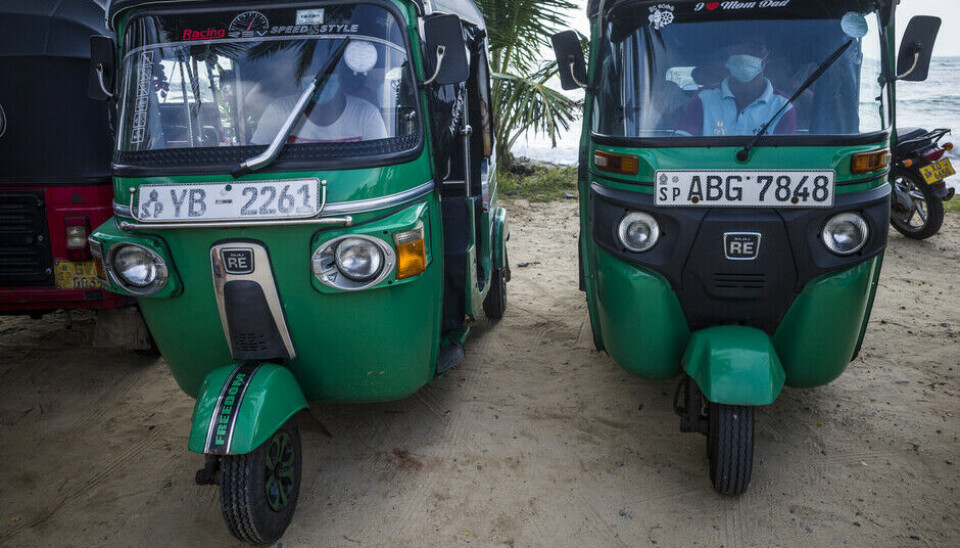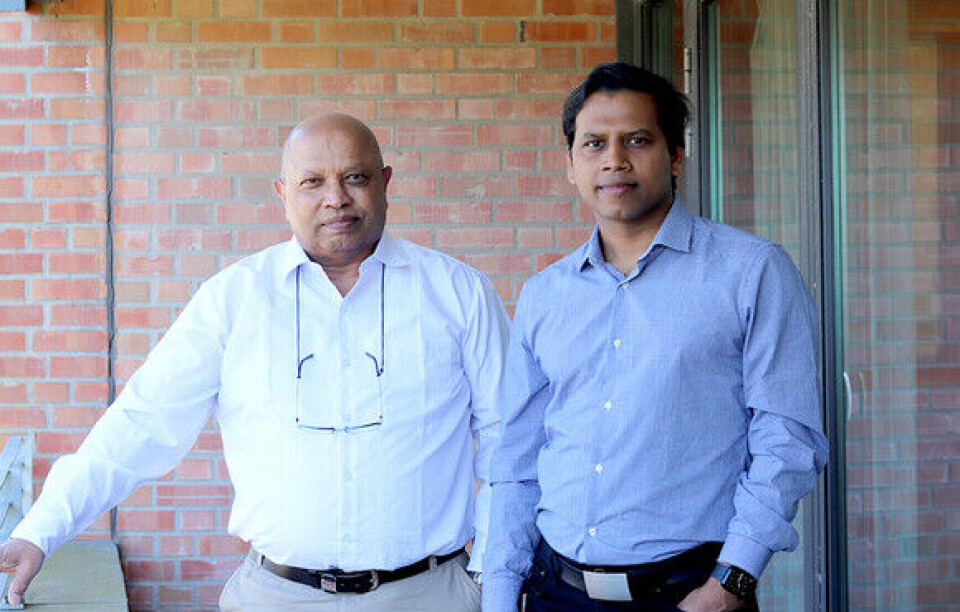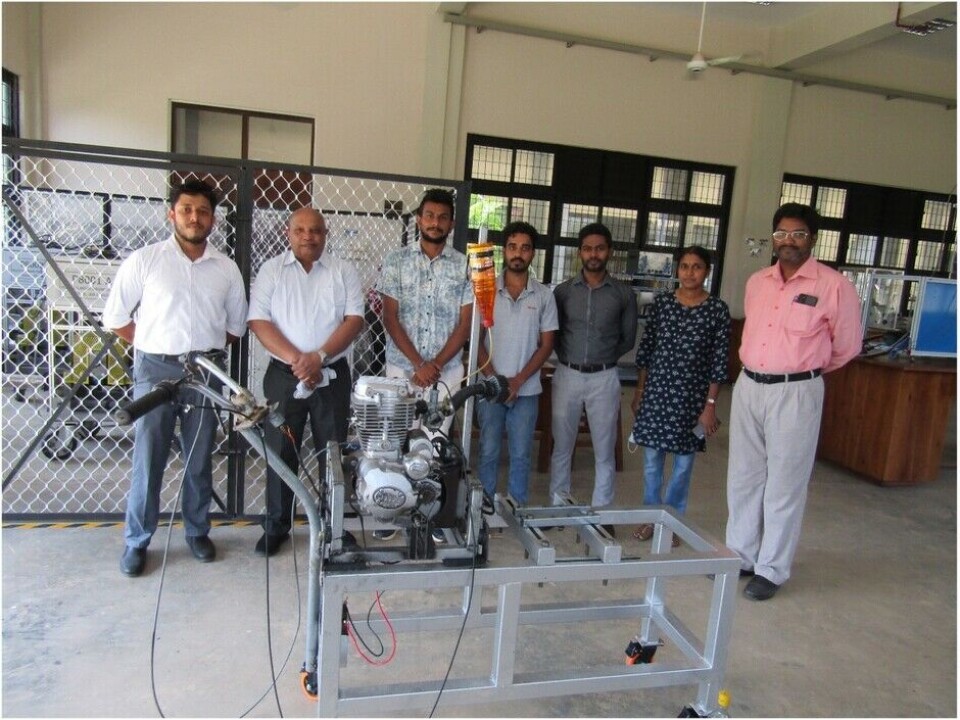THIS ARTICLE/PRESS RELEASE IS PAID FOR AND PRESENTED BY THE University of Agder - read more

Researchers are developing plant-based fuel for the rickshaws in Sri Lanka
Researchers from UiA are collaborating with the University of Jaffna to develop a more environmentally friendly transportation fuel in Sri Lanka.
“There is a great demand for fuel in Sri Lanka. Our goal is to replace petrol with a more environmentally friendly solution,” Alfred Christy from the Department of Natural Sciences at the University of Agder (UiA) says.
He and his colleague Souman Rudra from the Department of Engineering Sciences at UiA are working together with colleagues at the University of Jaffna to develop a product that can be used in the engines of the typical three-wheelers in Sri Lanka.
“In Sri Lanka and neighbouring countries, there are many motorised three-wheelers, also called rickshaws. From an environmental point of view, it is important to get the engines of these vehicles over to a more environmentally friendly fuel,” Christy says.

Plant-based fuel
Renewable and more environmentally friendly fuels are often called biofuels and are made from biological material. The product the researchers are developing is a plant-based oil mixture consisting of bioethanol and castor oil.
Bioethanol is produced from corn or sugar cane, while castor oil is obtained from the seeds of the castor plant and is extracted by cold pressing. The mixture has been named ‘Casahol’.
“What we see is that these two products together provide a lubricating oil with unique properties,” Christy says.
Research colleagues at the University of Jaffna recently conducted the first tests on a four-stroke motorcycle engine.
“The biofuel burned completely, and the oil mixture provided the lubrication the engine needs so as to avoid damage. This makes us optimistic about the development,” Christy says.

Students will come to UiA
Both Christy and Rudra are pleased with the positive results from the first phase of the project. In the autumn, two students from Jaffna, Sri Lanka, will come to UiA to continue working on the biofuel project.
“The students are already involved in the project in Sri Lanka and are coming here to explore it further,” Christy says.
The students will be at UiA for three months. Christy and Rudra plan to research and test the oil mixture on various engines here in Norway. Both snowblowers and lawn mowers in Norway have similar engines to the three-wheelers in Sri Lanka.
Collaboration partners
When the students return, they can transfer the skills and knowledge gained and the method used and continue the testing on Sri Lanka’s rickshaws. The project goal is also to commercialise the product they develop. According to Christy, there are great opportunities for commercial partners.
“We are always looking for partnerships, both professional and commercial. After delivering good results early in the project, we also have something to present,” Christy says.
The first tests of the biofuel have been conducted on an engine at the University of Jaffna, Sri Lanka. (Video: UiA/YouTube)

This article/press release is paid for and presented by the University of Agder
This content is created by the University of Agder's communication staff, who use this platform to communicate science and share results from research with the public. The University of Agder is one of more than 80 owners of ScienceNorway.no. Read more.
See more content from the University of Agder:
-
Research paved the way for better maths courses for multicultural student teachers
-
The law protects the students. What about the teachers?
-
This researcher has helped more economics students pass their maths exams
-
There are many cases of fathers and sons both reaching elite level in football. Why is that?
-
How we used plants to protect ourselves from evil
-
What is it like for nurses to promote health behind bars?




































